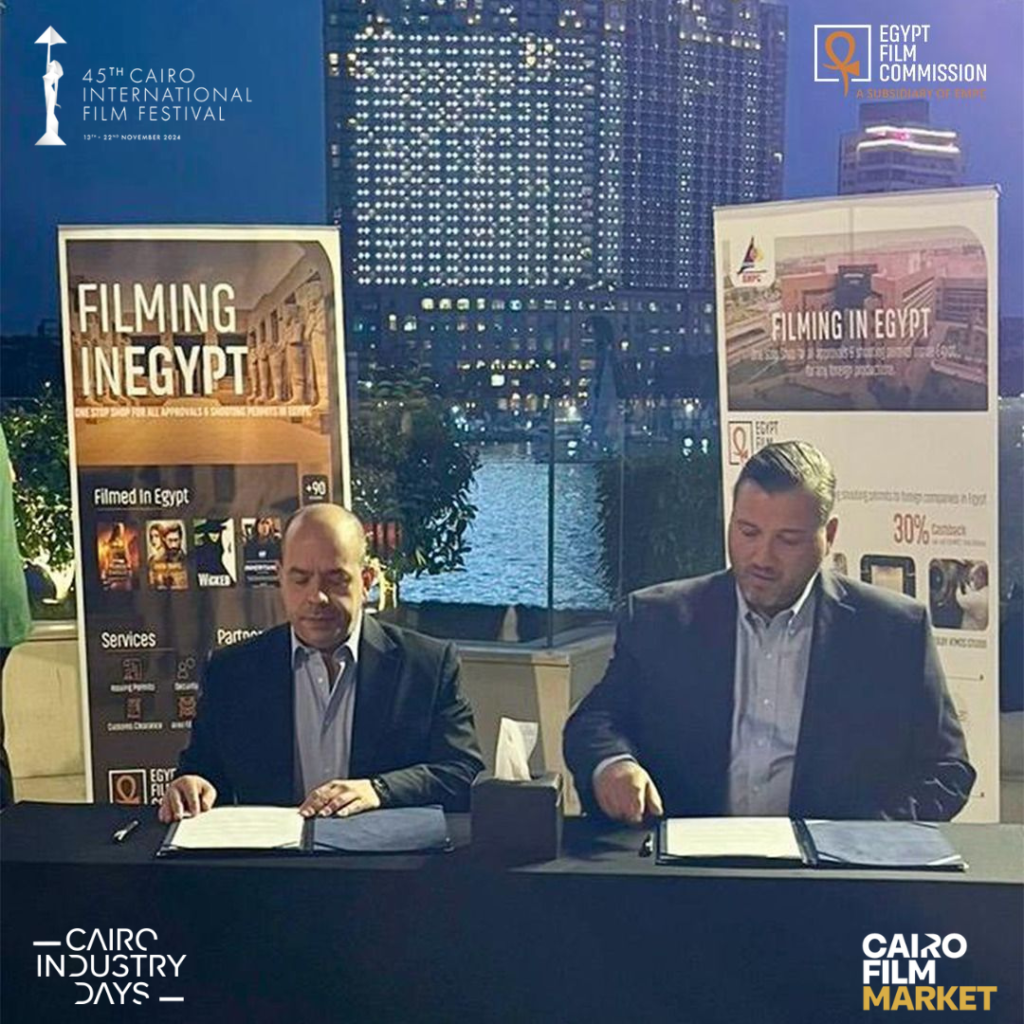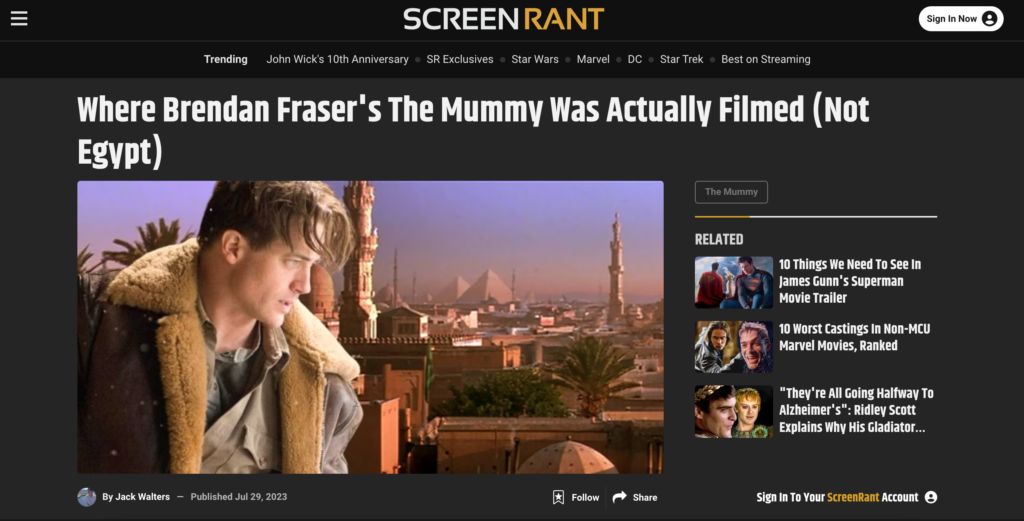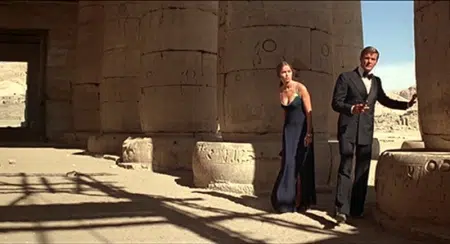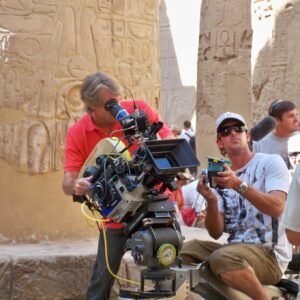The 45th edition of the Cairo International Film Festival (CIFF) has introduced a game-changing development for Egypt’s position in the global film industry. Ahmed Badawy, General Manager of the Egypt Film Commission, and John Rakich, President of the Location Managers Guild International (LMGI), signed a protocol aimed at making Egypt an attractive and accessible destination for international filmmakers.

This collaboration reflects a commitment to redefining Egypt’s place in the cinematic world. But as the global film industry has increasingly looked to other countries in recent years, is this move enough to reclaim the spotlight?
Egypt’s Cinematic Legacy: A Dream Destination
Egypt’s rich cinematic heritage and stunning locations have long made it a filmmaker’s dream. From the timeless Pyramids of Giza to the bustling streets of Cairo, the country offers unmatched scenery that can bring any story to life. Its vibrant culture and history make it an authentic choice for productions seeking unique, immersive backdrops.
Yet, despite its natural appeal, past challenges in securing permits and navigating regulations often pushed filmmakers to explore alternatives. For instance:
- The Mummy (1999): Although set in Egypt, this iconic adventure film was largely shot in Morocco due to streamlined filming processes.
- Moon Knight (2022): The Marvel series, heavily rooted in Egyptian mythology, chose Hungary and Jordan for most of its scenes because of logistical difficulties in Egypt.

These examples serve as a reminder of Egypt’s untapped potential. The new protocol aims to resolve these issues, ensuring Egypt is no longer an overlooked option but a first choice for filmmakers worldwide.
Why This Protocol Matters
This collaboration with the LMGI represents a turning point in Egypt’s approach to global cinema. Here’s why it’s significant:
- Simplified Logistics: A key goal of the protocol is to make the process of securing permits and coordinating productions more efficient, removing barriers for international crews.
- Global Industry Connections: Partnering with the LMGI provides direct access to international location scouts and production teams, creating opportunities to showcase Egypt’s diverse offerings.
- Economic Impact: Hosting international productions brings investments, boosts tourism, and creates jobs, contributing to Egypt’s economy.
- Cultural Promotion: Films shot in Egypt highlight its heritage and beauty, enhancing its reputation as a hub for creativity and storytelling.
Hussein Fahmy, President of CIFF, emphasized the importance of this initiative:
“Through these partnerships, we aim to highlight Egypt as a world-class cinematic destination with exceptional filming locations and state-of-the-art infrastructure.”
A New Era for Egyptian Cinema
This protocol benefits more than just international productions; it also supports the growth of Egypt’s local film industry. Increased collaboration with global filmmakers brings new expertise, resources, and opportunities for Egyptian talent.

Furthermore, films shot in Egypt have the power to inspire audiences worldwide. Just as New Zealand became synonymous with Middle-earth through The Lord of the Rings, Egypt has the potential to captivate the world with its unparalleled landscapes and historical wonders.
Is It Too Late? Not at All.
The global film industry is constantly evolving, with an ever-growing demand for authentic and visually striking locations. Egypt’s natural beauty, cultural heritage, and improved policies give it an edge that few countries can match.
This protocol represents a fresh start. The groundwork is set, and if Egypt continues to implement these changes effectively, it could soon rival the most sought-after filming destinations like Morocco and Croatia.
The Bigger Picture
This collaboration is more than just an industry agreement; it’s a statement about Egypt’s ambition to be a leading player in global cinema. With streamlined processes, strengthened partnerships, and a renewed focus on promoting its assets, Egypt is poised to welcome filmmakers from around the world.
As the 45th Cairo International Film Festival continues to champion initiatives like this, one thing is certain: Egypt’s cinematic future is brighter than ever. The cameras are ready to roll—are you?





